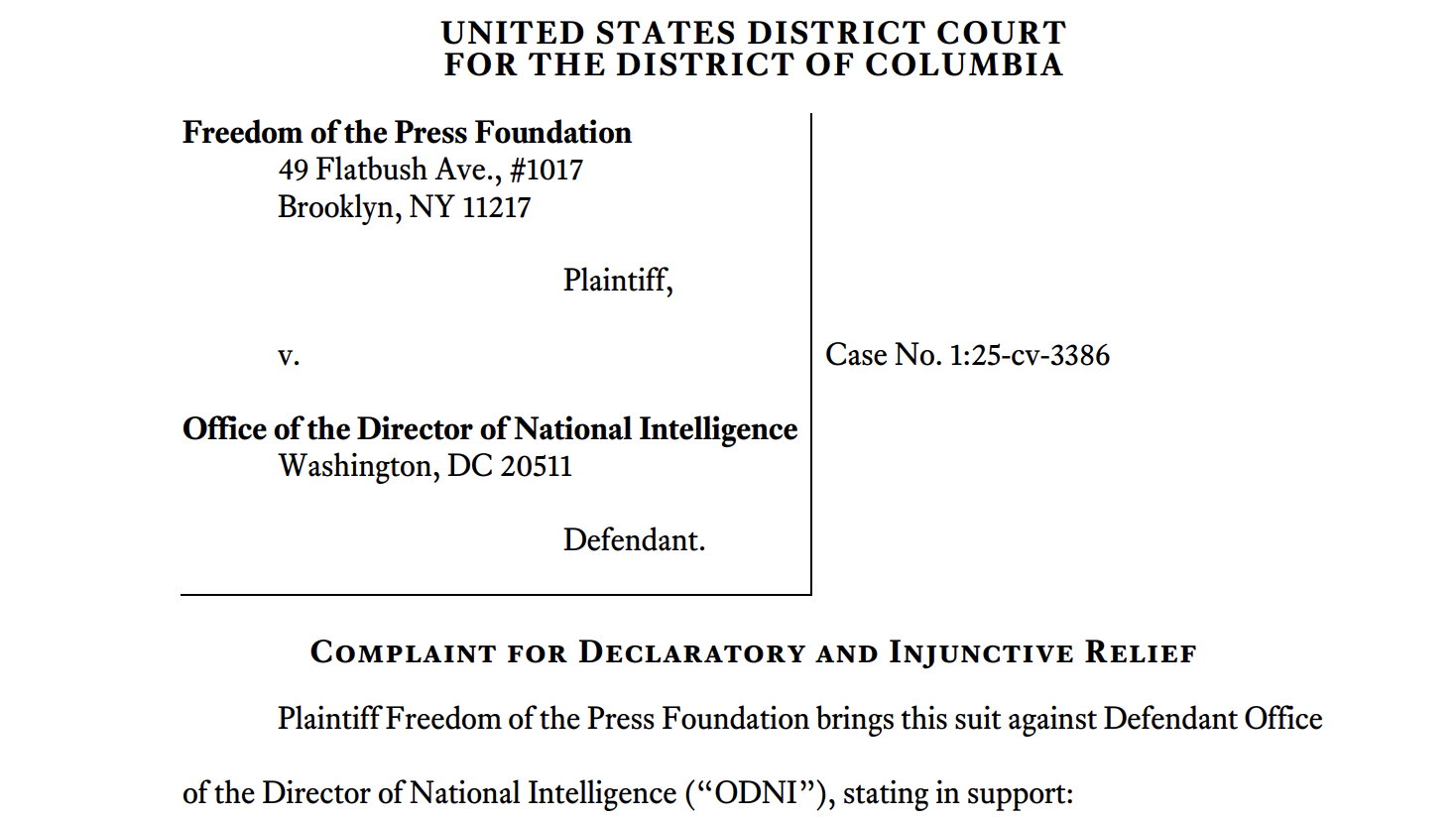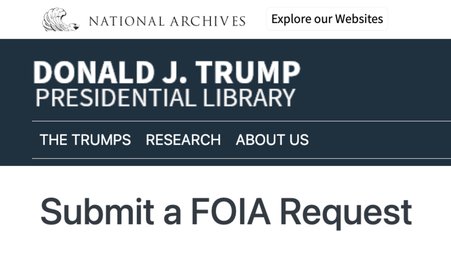The two main ways the public learns what the government is doing are from the government itself and from the press. At its core, this information dictates how we vote and how we hold officials accountable.
But the Trump administration’s excessive secrecy, coupled with its threats against media content it doesn’t like, threatens our ability to do either of these things.
There is good news. The Trump administration’s chokehold on information is not as tight as it would like to believe, and sustained public pressure for transparency can make a difference.
That’s why Freedom of the Press Foundation (FPF) filed three new Freedom of Information Act lawsuits this week, bringing the total number of FOIA lawsuits we’ve filed this year to five.
The suits target records about the administration’s efforts to hollow out its own transparency infrastructure, and its tactics for targeting members of the press.
Once released, this information should show Congress that FOIA offices and journalists both need more protection. (In the meantime, you can use this new FPF action center tool to write your senator or representative and demand they protect FOIA offices right now.)
Here is what FPF, represented by attorney Matthew Cate, is suing for:
- All emails sent or received by either Attorney General Pam Bondi or Department of Homeland Security Secretary Kristi Noem about the Trump administration’s outrageous claim that it wants to prosecute CNN for reporting on “ICEBlock,” an app that allows users to track U.S. Immigration and Customs Enforcement agents.
- All documents that Director of National Intelligence Tulsi Gabbard relied on to support her July 3, 2025, assertion on the social platform X that Washington Post reporter Ellen Nakashima refused to identify herself in the course of her reporting, lied about the fact she worked for the Post, and demanded agency officials share sensitive information.
- It’s no secret the administration is eager to charge a reporter under the Espionage Act, and FPF thinks it’s critical to know if Gabbard is trying to lay the groundwork to target one of the country’s most respected national security reporters with her bogus X claim.
- As part of the same lawsuit, we are seeking information related to Gabbard’s reported firing of a senior agency FOIA official who helped lawfully release a headline-making document in response to an earlier FPF FOIA request. These records could show the administration is unlawfully targeting FOIA officers for following the law.
- Together with 404 Media, we are suing DHS and the Centers for Medicare & Medicaid Services for a copy of the July 14, 2025, agreement granting ICE access to the personal data of the nation’s nearly 79 million Medicaid enrollees.
- It’s just common sense. ICE shouldn’t be able to spy on tens of millions of people, much less keep the details of its spying agreement secret.
It’s true that FOIA offices are struggling, and one of our suits shows why some officers may reasonably fear retaliation for releasing information.
But that is precisely why the public must continue to aggressively use FOIA. It shows the administration, the courts, and Congress that we have the appetite to continue to challenge capricious secrecy, and that we demand to take our rightful place in government decision-making.
If you’d like to help support our FOIA effort, you can donate here or contact FPF Director of Development John Halpin at [email protected]. Or, if you are a FOIA lawyer who is interested in working with us pro bono or for a reduced fee on FOIA litigation, you can contact me at [email protected].





